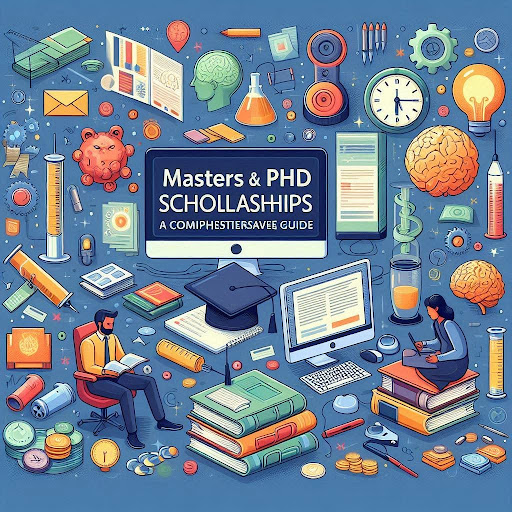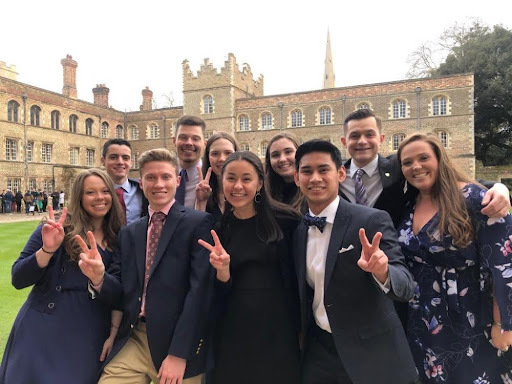Pursuing a Masters or PhD degree represents a significant commitment to advanced education, offering deep specialization and opportunities for impactful research. However, the financial burden can be daunting. Scholarships offer a vital avenue to ease this burden, enabling students to focus on their studies and research. This guide explores the various scholarship opportunities available for Masters and PhD students.
1. Merit-Based Scholarships
University Scholarships
– Many universities offer scholarships to attract top-tier students.
– Criteria often include academic excellence, research potential, and leadership qualities.
– Examples include the Rhodes Scholarship at the University of Oxford and the Gates Cambridge Scholarship at the University of Cambridge.
Government Scholarships
– Offered by national and regional governments to support higher education.
– Notable examples include the Fulbright Program (USA), Chevening Scholarships (UK), and DAAD Scholarships (Germany).
Private Organization Scholarships
– Many corporations, foundations, and non-profits provide scholarships.
– Examples include the Google PhD Fellowship, Microsoft Research PhD Fellowship, and Ford Foundation Fellowship.
2. Need-Based Scholarships
Institutional Need-Based Aid
– Universities often provide need-based scholarships to students with demonstrated financial need.
– Requires submission of detailed financial documentation.
Private Foundations and Non-Profits
– Organizations like the Ford Foundation and Open Society Foundations offer need-based scholarships to support students from underrepresented backgrounds.
3. Subject-Specific Scholarships
STEM Scholarships
– Numerous scholarships are available for students in Science, Technology, Engineering, and Mathematics.
– Examples include the National Science Foundation (NSF) Graduate Research Fellowship (USA) and the Commonwealth Scholarship for STEM subjects.
Humanities and Social Sciences Scholarships
– Specific scholarships cater to students in these fields, such as the SSHRC Doctoral Fellowships (Canada) and the British Academy Postgraduate Scholarships.
Health and Medical Sciences Scholarships
– Scholarships targeted at medical and health-related fields, such as the Wellcome Trust Doctoral Studentships and the NIH Oxford-Cambridge Scholars Program.
4. Research-Focused Scholarships
Research Council Funding
– Many countries have research councils that fund postgraduate research.
– Examples include the Economic and Social Research Council (ESRC) in the UK and the Australian Research Council (ARC).
University Research Scholarships
– Universities often offer scholarships specifically for research degrees.
– These include the Cambridge International Scholarship Scheme and the Stanford Graduate Fellowship.
5. International Scholarships
Home Country Scholarships
– Many countries offer scholarships to their citizens to study abroad.
– Examples include the Mexican Government Scholarships and the Saudi Arabian Cultural Mission Scholarships.
International Organizations
– Scholarships provided by entities like the United Nations, World Bank, and Asian Development Bank.
– Programs such as the Rotary Foundation Global Grant Scholarships and the Joint Japan/World Bank Graduate Scholarship Program support international students.
6. Diversity and Inclusion Scholarships
Minority and Underrepresented Group Scholarships
– Aim to increase diversity in higher education.
– Examples include the Ford Foundation Predoctoral Fellowships (USA) and the PEO International Peace Scholarship for women.
Gender-Specific Scholarships
– Scholarships targeted at women or other gender minorities.
– Examples include the AAUW International Fellowships and the Women Techmakers Scholars Program.
7. Professional and Career-Based Scholarships
Industry-Sponsored Scholarships
– Many industries offer scholarships to encourage study in fields relevant to their business.
– Examples include the IBM PhD Fellowship and the Google Lime Scholarship for students with disabilities.
Professional Associations
– Associations often offer scholarships to their members.
– Examples include the American Psychological Association (APA) Scholarships and the Institute of Electrical and Electronics Engineers (IEEE) Scholarships.
Application Tips for Securing Scholarships
Start Early
– Scholarship deadlines can be early in the academic year, so begin your search and application process as soon as possible.
Research Thoroughly
– Explore multiple sources including university websites, government portals, and professional organizations.
Tailor Your Applications
– Customize your application essays and personal statements to align with the specific criteria and goals of each scholarship.
Seek Strong Recommendations
– Obtain recommendation letters from professors or professionals who know your academic and research capabilities well.
Highlight Your Achievements
– Emphasize your academic achievements, research experience, leadership roles, and extracurricular activities.
Prepare a Strong Research Proposal
– For research-focused scholarships, a well-defined and compelling research proposal is crucial.
Navigating the landscape of Masters and PhD scholarships requires dedication and strategic planning. By understanding the various types of scholarships available and tailoring your applications to meet their criteria, you can significantly ease the financial burden of postgraduate education. Embrace this opportunity to invest in your future, allowing scholarships to support your journey toward academic and professional excellence.



